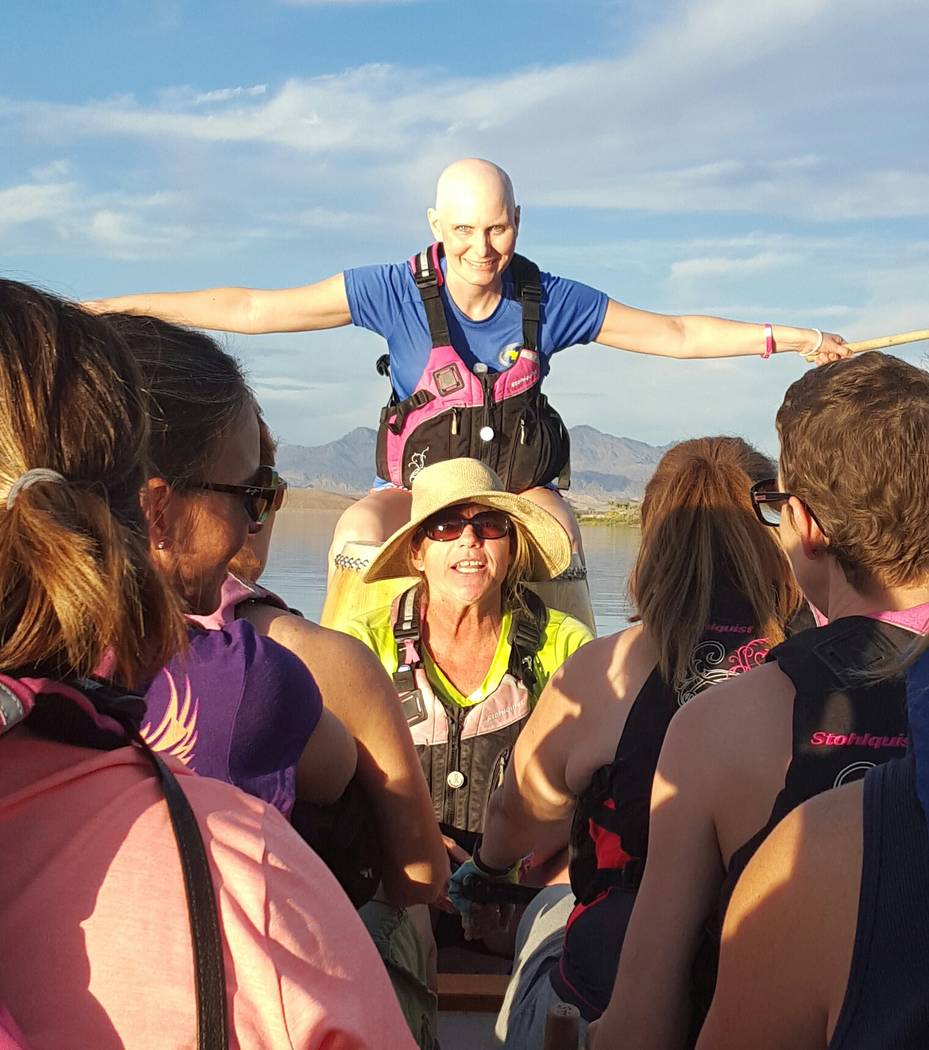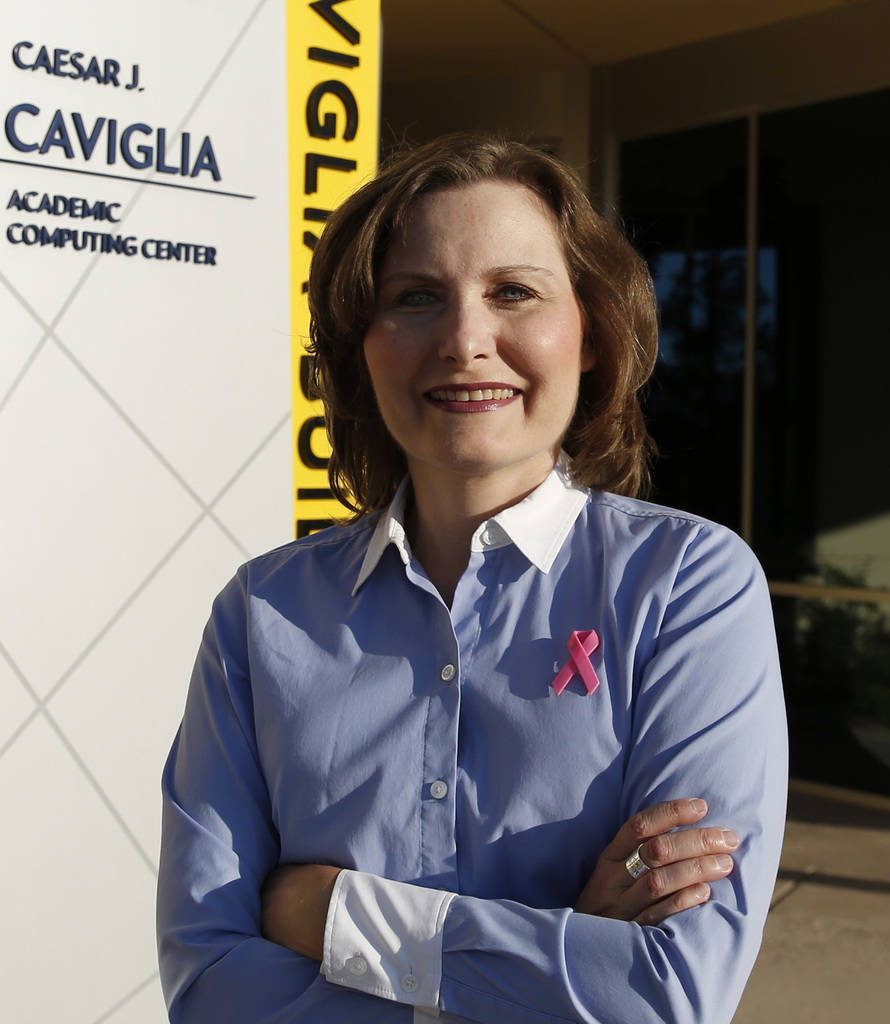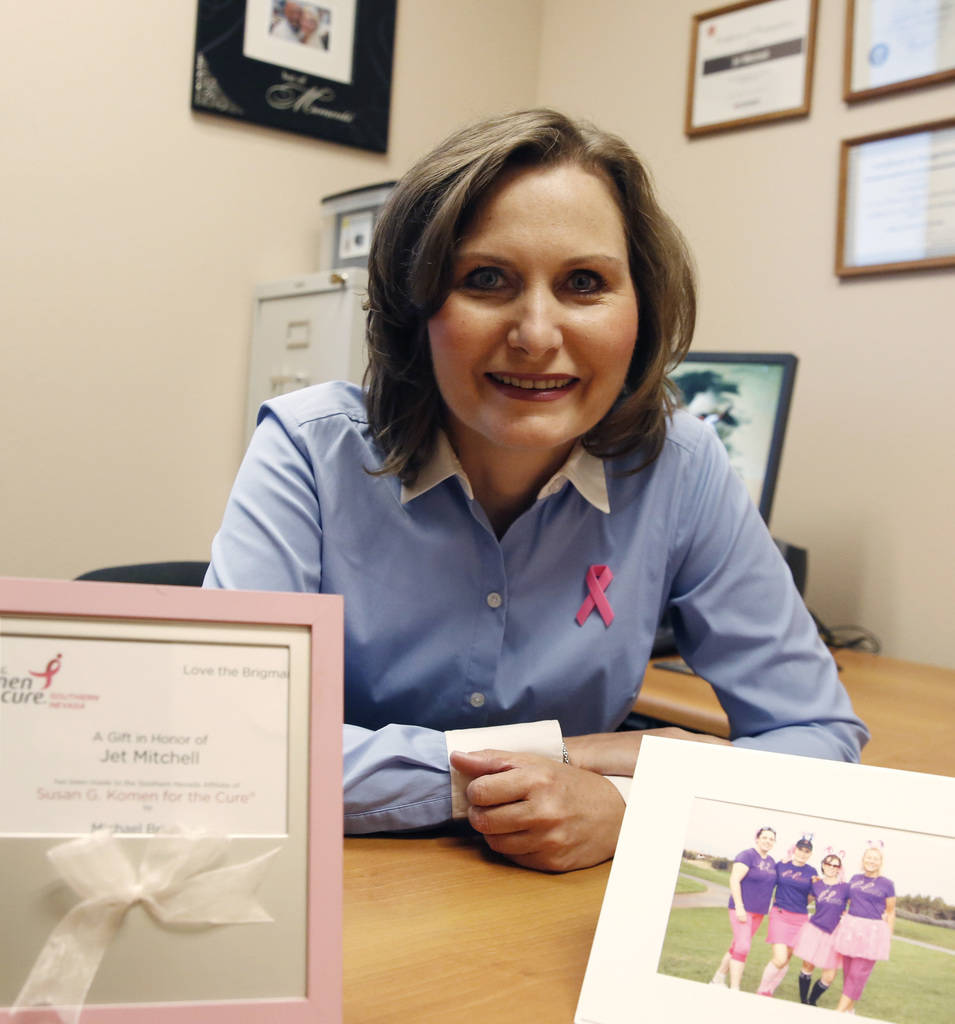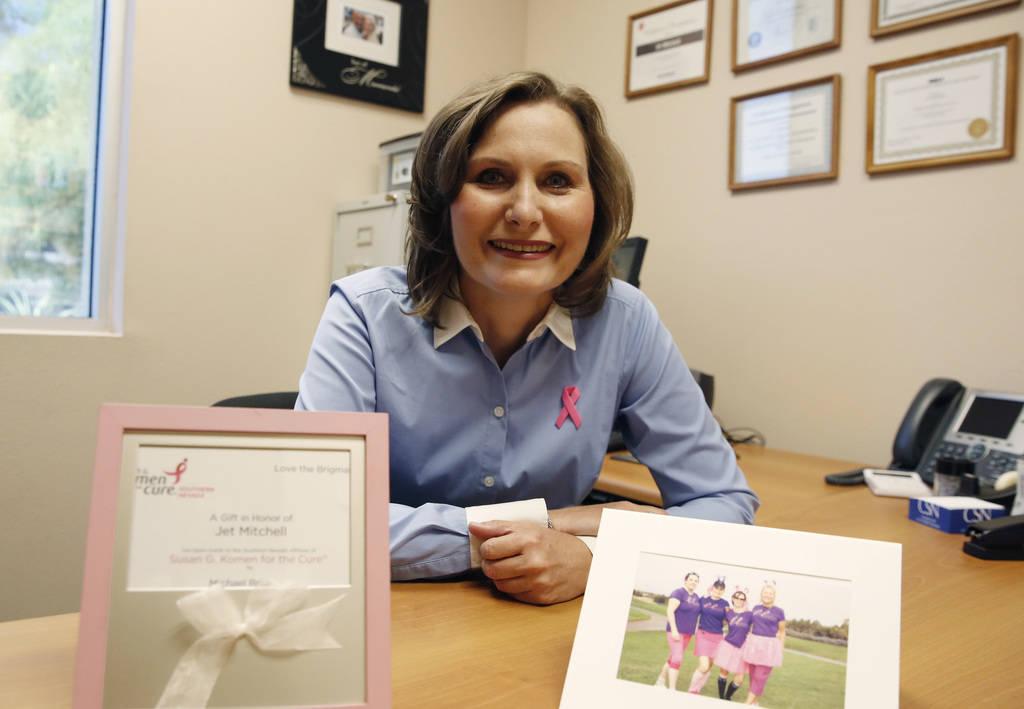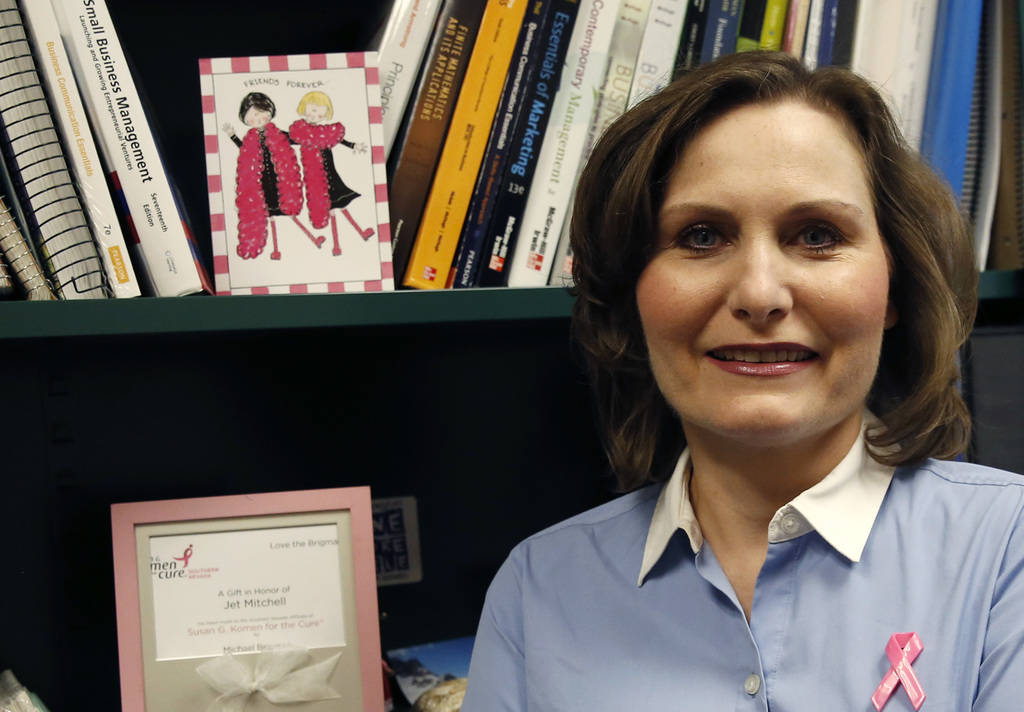CSN professor, advocate receives a community service award
Three years ago, Jet Mitchell was diagnosed with Stage 3 breast cancer with no family history or lifestyle factors contributing to her diagnosis. In 2016, the disease progressed to Stage 4.
She refused to let the condition control her life, diving headfirst into vocal advocacy. A full-time professor at the College of Southern Nevada, she decided she wouldn’t miss one day of teaching because of her condition, nor would she opt out of her daily routine.
“And I haven’t,” she said. “I just wanted to live my life during treatment, not ashamed and not hiding. I never wore wigs. I just wanted to be me. CSN was very supportive from day one. I told my leadership at CSN that I plan to be Professor Jet as long as possible.”
Mitchell’s diagnosis strengthened her will to live. She runs and travels abroad regularly, always reminding herself to “just do it.”
“I’ve actually run a half marathon in all 50 states,” she said. “In 2015, I received an injection on a Thursday at 3 p.m. and that Sunday I finished the Las Vegas Half. I’ve managed it by eating, staying active and just saying, ‘You know what? Even if I don’t feel 100 percent, I’ll still do it.’ So far, not a sick day yet.”
She advocates for cancer sufferers and survivors, speaking publicly about the importance of an active lifestyle during and after diagnosis and treatment. She’s spoken in Carson City and Washington, D.C., among other places.
“I think many women are afraid that if they talk about it, they’ll give it more power,” Mitchell said. “To me, I think it gives it less power. If I give more information, talk about it, it isn’t this scary monster under the bed, a boogeyman in the night. It’s just a chronic disease that I’m living with.”
A licensed attorney with a juris doctorate from UNLV, Mitchell was recently awarded the Community Service Award at the Las Vegas Women of Technology Awards. Her connection to technology comes from 13 years with the Las Vegas chapter of Robert Half Technology, a recruiting agency that she and two colleagues co-founded. She also worked for several years as a headhunter for Aristocrat Technologies. Now, she teaches business, business mathematics, management and marketing at CSN.
Mitchell still receives chemotherapy and will for the rest of her life, but that hasn’t curbed her dedication to her responsibilities and those she impacts in the classroom.
How does having Stage 4 breast cancer affect your life?
Ironically, I think it’s just similar to how I approach having a job applicant I’m championing for a job. I’m going to push, and I’m going to be out there and I’m going to do everything I can. I’ve been fortunate since my diagnosis to talk to several students and faculty who have been affected by cancer.
How do your students inspire you to keep going?
Thousands of ways. Every semester I make it a personal mission to help two students in an exceptional way. Last semester I awarded Diana Marino, who’s a student, a scholarship. I got to meet her family, get her scholarship money. I also invited her to and sponsored her first professional networking lunch. That’s what keeps me going: being able to really move the needle substantially for people like Diana.
Talk about some of the places you’ve spoken to audiences about breast cancer. What led you to start speaking openly about it?
Several different groups advocating breast cancer awareness asked me to speak. I had the opportunity to meet with Nevada Sen. (Dean) Heller to talk about health care, and I’ve had the opportunity to testify in the Nevada Legislature. I never thought I’d speak out about Stage 4 breast cancer. But when I realized no one was talking about it, I thought I’d be the one to do it. The diagnosis has been a microphone. I didn’t expect it to be, but while I have the microphone, I feel compelled — that it’s my duty to talk for those who can’t and those who aren’t able today but are living their lives with cancer.
In a letter to the editor, you said health care is under attack. What did you mean by that?
Right now, 155,000 women are living with metastatic cancer. Less than 4 percent of funding goes to Stage 4 cancer, which is atrocious because that’s where the critical need is. We desperately need more funding for metastatic cancer, more research, more action. In Southern Nevada, statistically women die at a higher rate. Some women have to choose between paying the rent and receiving treatment.
You have a law degree. Did you ever practice?
No, I actually went to law school for fun. It was really enjoyable, but I never intended to become a lawyer. At the time I went, I was at Robert Half. I just enjoy being Professor Jet. I have found that using law examples in talking to students has been helpful. It adds to education and I think students can appreciate having that knowledge as well.
What do you enjoy most about advocating for women with breast cancer?
Reaching out to people who haven’t been heard and talking about a subject that is usually a very sensitive topic.
Contact Mia Sims at msims@reviewjournal.com. Follow @miasims__ on Twitter.





